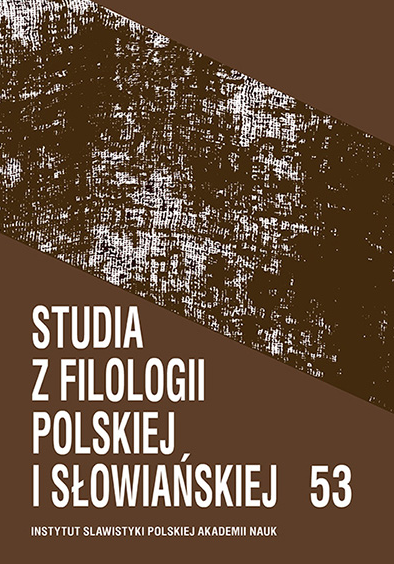Префіксоїди супер- і мега- як засоби оновлення футбольного лексикону: українсько-польські паралелі
Prefixoides super- and mega- as means of football lexicon renewal: Ukrainian and Polish parallels
Author(s): Vitalii V. MaksymchukSubject(s): Media studies, Lexis, Comparative Linguistics, Western Slavic Languages, Eastern Slavic Languages, Sports Studies, ICT Information and Communications Technologies
Published by: Instytut Slawistyki Polskiej Akademii Nauk
Keywords: football lexicon; Internet football discourse; neologism; prefixoide super- and mega-; innovation; term;
Summary/Abstract: The article describes the neologisms with the prefixoides super- and megarecorded in the modern Ukrainian and Polish football Internet discourse. Those innovations add meaningfulness and dynamism to a text, render the word semantics more expressive and intensive, and contribute to the economy of language resources. In Ukrainian and Polish football Internet discourse the prefixoides super- and mega- are synonyms, and using them as structural components of neologism depends on the speaker’s language and aesthetic tastes. The prefixoidal innovations are used for the nomination of different football processes, phenomena and actions, such as: a) football games; b) game moments; c) hits on the ball; d) scored goals; e) tactical moves by a team; f) individual players’ technical moves; g) results of matches etc. Most often, the neologisms with the prefixoides super- and mega- contain the seme ‘the best; exceeding the level of others,’ while some are based on the semes ‘powerful,’ ‘intensive,’ ‘effective,’ ‘the most modern.’ When added to an anthroponym, neologisms which contain the prefixoides super- and mega- stress the football player’s professionalism. In Ukrainian and Polish football Internet discourse, the formative base for prefixoidal neologism are usually borrowed lexemes, although in Polish there is a stronger tendency to use native lexemes in this capacity, some of which do not have direct counterparts in Ukrainian, for example, superłącznik, megawolej. The football lexicons of both languages absorbed military words to foster expressiveness by likening football to warfare. On the whole, the aspects of football described by the neologisms lead to the conclusion that for the speakers football is interesting as a game, but not as business or a commercial product.
Journal: Studia z Filologii Polskiej i Słowiańskiej
- Issue Year: 2018
- Issue No: 53
- Page Range: 204-228
- Page Count: 25
- Language: Ukrainian

